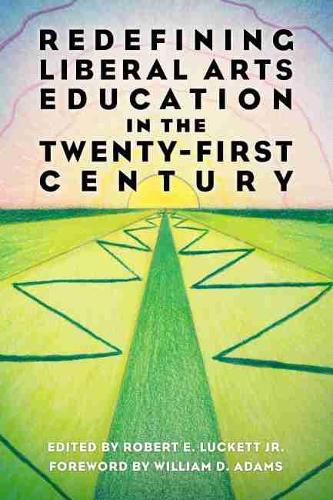Readings Newsletter
Become a Readings Member to make your shopping experience even easier.
Sign in or sign up for free!
You’re not far away from qualifying for FREE standard shipping within Australia
You’ve qualified for FREE standard shipping within Australia
The cart is loading…






This title is printed to order. This book may have been self-published. If so, we cannot guarantee the quality of the content. In the main most books will have gone through the editing process however some may not. We therefore suggest that you be aware of this before ordering this book. If in doubt check either the author or publisher’s details as we are unable to accept any returns unless they are faulty. Please contact us if you have any questions.
Contributions by Sarah Archino, Mario J. Azevedo, Katrina Byrd, Rico D. Chapman, Helen O. Chukwuma, Tatiana Glushko, Eric J. Griffin, Kathi R. Griffin, Yumi Park Huntington, Thomas M. Kersen, Robert E. Luckett Jr., Floyd W. Martin, Preselfannie W. McDaniels, Dawn McLin, Laura Ashlee Messina, Byron D'Andra Orey, Kathy Root Pitts, Candis Pizzetta, Lawrence Sledge, RaShell R. Smith-Spears, Joseph Martin Stevenson, Seretha D. Williams, and Karen C. Wilson-Stevenson, and Monica Flippin Wynn
Redefining Liberal Arts Education in the Twenty-First Century delves into the essential nature of the liberal arts in America today. During a time when the STEM fields of science, technology, engineering, and math dominate the narrative around the future of higher education, the liberal arts remain vital but frequently dismissed academic pursuits.
While STEAM has emerged as a popular acronym, the arts get added to the discussion in a way that is often rhetorical at best. Written by scholars from a diversity of fields and institutions, the essays in this collection legitimize the liberal arts and offer visions for the role of these disciplines in the modern world. From the arts, pedagogy, and writing to social justice, the digital humanities, and the African American experience, the essays that comprise Redefining Liberal Arts Education in the Twenty-First Century bring attention to the vast array of ways in which the liberal arts continue to be fundamental parts of any education.
In an increasingly transactional environment, in which students believe a degree must lead to a specific job and set income, colleges and universities should take heed of the advice from these scholars. The liberal arts do not lend themselves to the capacity to do a single job, but to do any job. The effective teaching of critical and analytical thinking, writing, and speaking creates educated citizens. In a divisive twenty-first-century world, such a citizenry holds the tools to maintain a free society, redefining the liberal arts in a manner that may be key to the American republic.
$9.00 standard shipping within Australia
FREE standard shipping within Australia for orders over $100.00
Express & International shipping calculated at checkout
This title is printed to order. This book may have been self-published. If so, we cannot guarantee the quality of the content. In the main most books will have gone through the editing process however some may not. We therefore suggest that you be aware of this before ordering this book. If in doubt check either the author or publisher’s details as we are unable to accept any returns unless they are faulty. Please contact us if you have any questions.
Contributions by Sarah Archino, Mario J. Azevedo, Katrina Byrd, Rico D. Chapman, Helen O. Chukwuma, Tatiana Glushko, Eric J. Griffin, Kathi R. Griffin, Yumi Park Huntington, Thomas M. Kersen, Robert E. Luckett Jr., Floyd W. Martin, Preselfannie W. McDaniels, Dawn McLin, Laura Ashlee Messina, Byron D'Andra Orey, Kathy Root Pitts, Candis Pizzetta, Lawrence Sledge, RaShell R. Smith-Spears, Joseph Martin Stevenson, Seretha D. Williams, and Karen C. Wilson-Stevenson, and Monica Flippin Wynn
Redefining Liberal Arts Education in the Twenty-First Century delves into the essential nature of the liberal arts in America today. During a time when the STEM fields of science, technology, engineering, and math dominate the narrative around the future of higher education, the liberal arts remain vital but frequently dismissed academic pursuits.
While STEAM has emerged as a popular acronym, the arts get added to the discussion in a way that is often rhetorical at best. Written by scholars from a diversity of fields and institutions, the essays in this collection legitimize the liberal arts and offer visions for the role of these disciplines in the modern world. From the arts, pedagogy, and writing to social justice, the digital humanities, and the African American experience, the essays that comprise Redefining Liberal Arts Education in the Twenty-First Century bring attention to the vast array of ways in which the liberal arts continue to be fundamental parts of any education.
In an increasingly transactional environment, in which students believe a degree must lead to a specific job and set income, colleges and universities should take heed of the advice from these scholars. The liberal arts do not lend themselves to the capacity to do a single job, but to do any job. The effective teaching of critical and analytical thinking, writing, and speaking creates educated citizens. In a divisive twenty-first-century world, such a citizenry holds the tools to maintain a free society, redefining the liberal arts in a manner that may be key to the American republic.